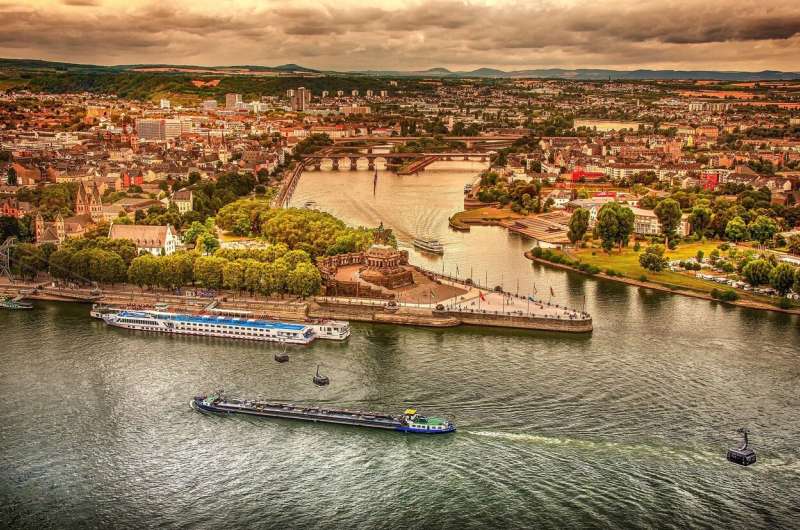Credit: CC0 Public Domain
Germany will get tougher on masks, extend a ban on large events and introduce new quarantine rules for travellers to combat a worrying rise in coronavirus cases, Chancellor Angela Merkel said Thursday.
"In view of the increased numbers, we now have to take a new approach," Merkel said after talks with the leaders of Germany's 16 federal states aimed at creating a more coherent approach to the pandemic.
New measures include a minimum fine of 50 euros ($59) for anyone caught without a face mask in places where wearing one is compulsory, such as in shops and on public transport—agreed by all states but Saxony-Anhalt.
A ban on large events will be extended from the end of October until December 31. It applies to any major event where comprehensive contact tracing is impossible, Merkel said.
There was a glimmer of hope however for football fans, after politicians agreed to let a working group come up with a concept by the end of October to possibly allow spectators at large sporting events.
The German Football League (DFL) has already unveiled detailed plans to bring fans back into stadiums safely this autumn, including through personalised tickets.
Interior and Sports Minister Horst Seehofer had earlier suggested it should be possible to hold Bundesliga football games "with just a few spectators keeping a large distance".
Merkel said Thursday's talks with state leaders had focussed heavily on what to do about travellers returning from high-risk areas and bringing the virus back with them.
"We have decided today, and this is new, that we are calling on people to avoid travel to risk areas wherever possible," Merkel said.
Those who decide to go ahead with non-essential trips to such countries will no longer be able to claim compensation for wages lost due to quarantine requirements, she warned.
Five-day quarantine
As in other countries, Germany's surge in coronavirus cases in recent weeks has been mainly blamed on summer travel and friends and family get-togethers.
"We are taking this increase during the summer months very seriously," Merkel said.
Germany earlier this month introduced free mandatory tests for travellers returning from high-risk areas and free voluntary tests for those coming back from elsewhere.
But it now plans to scrap free tests for those returning from non-risk areas from September 15, and to introduce stricter quarantine rules for those returning from risk areas.
From October 1, those returning to Germany from a risk area will have to go into quarantine at home for at least five days before taking a test. Only if they then test negative can they be released early from the 14-day quarantine.
Authorities also plan to step up controls to ensure people adhere to quarantine rules.
Merkel and regional leaders had hoped to set an upper limit for the number of people allowed at gatherings in private homes, but were unable to agree.
The draft text seen by AFP nevertheless urged citizens "to limit the number of people they come into contact with", to keep a distance of 1.5 metres (five feet) and to opt for gatherings "in the open air" over indoor ones.
Patchwork criticism
Under Germany's federal system each state has the right to impose its own coronavirus regulations, leading to a patchwork of rules critics say can be confusing.
The current penalties on flouting mask rules for instance vary wildly, from 40 euros in Hamburg and 250 euros in Bavaria to no fines at all in Brandenburg.
Germany on Thursday reported 1,507 new coronavirus cases, bringing the total to 237,936, according to the Robert Koch disease control institute.
The country has so far recorded 9,285 deaths.
© 2020 AFP























